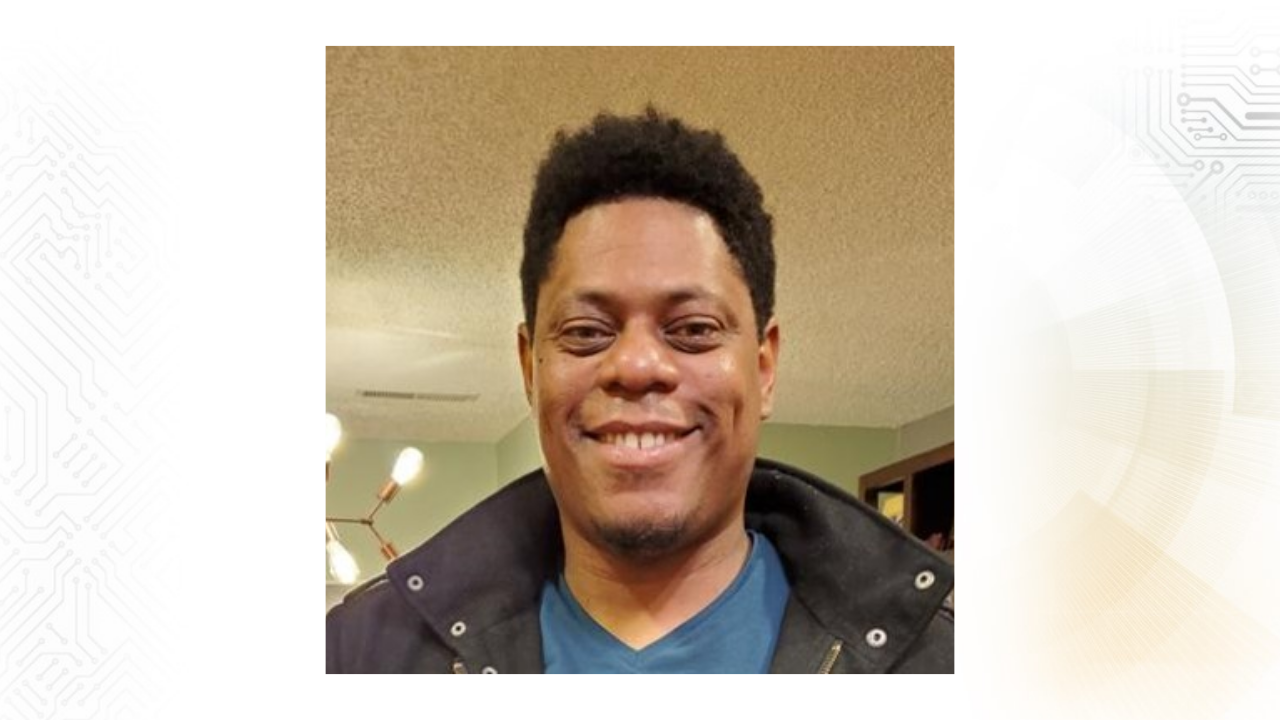
Biography: Jeremy Roberson, Ph.D. '07
Jeremy Roberson
Director of Software Engineering, Analog Devices | LinkedIn
Ph.D. Electrical Engineering, '07
Jeremy Roberson obtained his electrical engineering Ph.D. in Signal Processing for Wireless Communications from UC Davis in 2007. After graduating, he joined the Aerospace Corporation where he did applied research in areas of cognitive radio, software defined radio, and GPS 3. He later Joined Synaptics as an R&D engineer working on embedded signal processing and machine learning algorithms for capacitive touch and fingerprint sensing systems. He moved onto Intel, where he managed a team working on deep learning algorithms for Automatic Speech Recognition and Biomedical imaging. At Intel, he was a member of the Intel Black Leadership Council, whose charter was to help promote diversity within Intel.
Currently, he is a technical director on the AI inference team, working on the software toolchain for a custom AI inference accelerator chip. In this role, Jeremy gives technical webinars and presentations at various industry conferences. He is the recipient of the 2021 ECE Leadership in Promoting Diversity, Equity and Inclusion Award. Jeremy holds patents and publications in the areas of signal processing, machine learning, and circuits and systems. He enjoys mentoring young engineers as well as furthering STEM education.
We took a moment to chat with Jeremy to learn more about what technology excites him, and also to reflect on his biggest influences when he was a UC Davis student.
What research or technology are you most excited about right now, and why?
Machine Learning. It may be a catch all buzz term that is sweeping the hearts and imaginations of laymen and professionals alike, but it is also the field that I have been actively involved in for the past 8 years. The job of my team is to find out where the industry is going to be in 1-2 years and to develop the HW/SW necessary to enable it, so naturally I am very excited about it. It's exciting on my end because it requires high degrees of innovation both on the SW side, but also on the HW side because new silicon is necessary to run AI efficiently, at scale. I've seen one report which predicted that 75% of all new chips will be required to run some AI workload, so the reach of AI will be quite expansive. No one quite knows where it will all go, which just adds to the excitement.
How did your time at UC Davis impact you and/or prepare you for your career?
A lot of my growth at UC Davis happened in graduate school even though I attended for undergrad as well. The biggest growth came by watching how other Masters and Ph.D. students went about the process of solving very difficult problems that few people had attempted to solve before. I developed an attitude of innovation where I assumed that most hard problems could be solved eventually so long as one used appropriate engineering practices. These practices involve discerning which first principles apply and which ones do not. They involve discerning when you need to rely more on prototyping, empirical analysis, intuition, trial and error, collaboration with others, instead of just working out theory alone. I also learned how to identify good problems to solve, because not all problems are worth the effort to solve. I also gained exposure to other technology areas such as sensor networks, modulation recognition techniques, UWB, FPGA technology, embedded software design, which were very useful to me in my early career. If I just did my narrow topic area during my Ph.D., I don't believe I would have been as effective in my early career. Being specialized is critical, but having broader exposure, and being forced to work closely with others was still essential preparation for me.
Did you have a favorite course or instructor at UC Davis?
My favorite course and professor would be ECE 160 taught by Professor Zhi Ding. My runner up course would be ECE 100. My runner up professor would be Professor Kent Wilken.
What advice would you give to young people who are currently seeking a degree in electrical and computer engineering?
ECE is an amazing field that mixes the traditional sciences of math and physics with new fields such as computer science, AI, and machine learning. The University is a unique place to real build your first principles, your rigorous problem-solving skills, your grit, and your engineering intuition. At no other time will you be able to spend hours with the greatest minds on the planet, honing your skills, without any distractions such as revenue, performance review cycles, customer requirements, workplace politics, and the like. Build strong relationships with faculty, and constantly use their expertise and their support to stretch your mind. Challenge yourself, take risks, be curious, take advantage of every resource available, and focus on maximizing your growth and your passion, instead of being obsessed with padding your resume.
